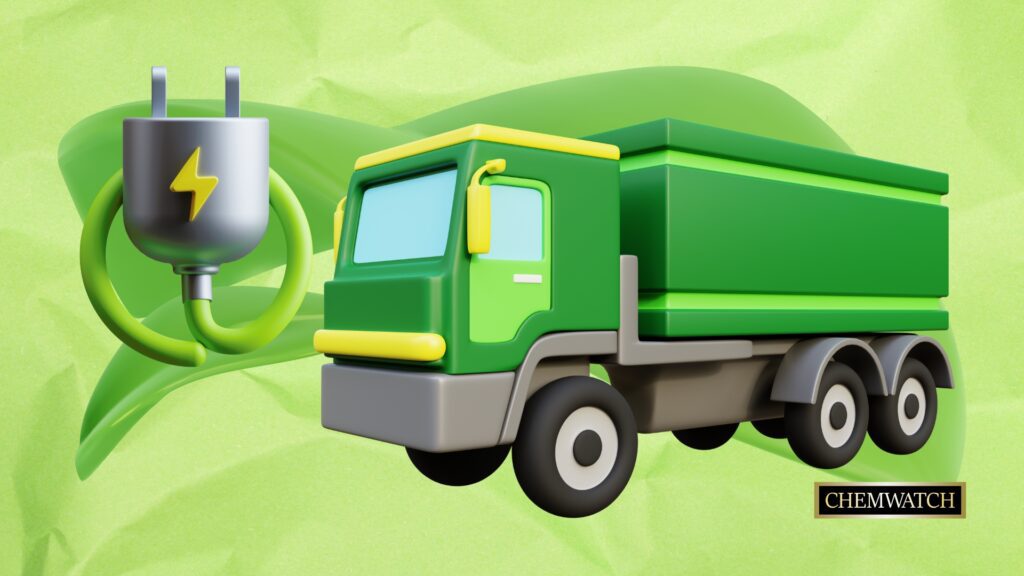
Lately, there has been a growing concern about the impact of transportation on the environment and public health. Commercial vehicles have been identified as a significant source of air pollution and greenhouse gas emissions. In response to this burgeoning problem, manufacturers and policymakers are exploring new ways to reduce the negative impact of commercial vehicles on the environment. One promising solution is the development of zero-emission trucks.

Zero-emission trucks are vehicles that do not emit any pollutants during operation. They use electric power instead of diesel or gasoline, which significantly reduces the emission of harmful gases such as nitrogen oxides (NOx), particulate matter (PM), and carbon dioxide (CO2).
There are a variety of zero-emission trucks currently available in the market, each with their own advantages and disadvantages. The most common types are battery electric vehicles (BEVs), fuel cell electric vehicles (FCEVs), and hybrid electric vehicles (HEVs).
BEVs are fully electric vehicles that use batteries to store energy and power an electric motor. They are generally considered the most efficient and environmentally friendly type of zero-emission truck. On the other hand, FCEVs use hydrogen fuel cells to produce electricity that powers an electric motor. They are emission-free but require a complex infrastructure for creating, storing, and distributing hydrogen fuel. HEVs combine an electric motor and an internal combustion engine (ICE) to improve fuel efficiency and reduce emissions.

Adopting zero-emission trucks can benefit society and the environment in numerous ways. One of the main advantages is the reduction of air pollution and greenhouse gas emissions. Zero-emission trucks emit no tailpipe pollutants, which can help improve air quality and reduce the negative impact of transportation on public health.
Another advantage is the potential to reduce the dependence on fossil fuels. Zero-emission trucks can help decrease the oil demand and reduce the reliance on foreign oil imports using electric power instead of diesel or gasoline. It can help mitigate the economic and geopolitical risks of oil dependence.
Zero-emission trucks can also provide a more quiet and comfortable driving experience. Electric motors are generally quieter and smoother than ICEs, which can reduce noise pollution and improve driving comfort.
Despite many potential advantages, adopting zero-emission trucks still comes with several challenges and limitations. One of the main obstacles is the high cost of the technology. Zero-emission trucks are generally more expensive than conventional diesel or gasoline vehicles, hindering their adoption.
Another challenge is the limited range and payload capacity of some zero-emission trucks. Battery electric trucks have a shorter range and require longer charging times than diesel or gasoline trucks. It can limit usability in some applications and require significant infrastructure investments to support long-haul and heavy-duty operations.
Furthermore, the lack of supportive policies and infrastructure can also hinder the adoption of zero-emission trucks. The availability of charging stations, hydrogen fuelling stations, and financial incentives can play a critical role in promoting the adoption of zero-emission trucks.

Despite the challenges, governments and industry leaders are taking action to promote the adoption of zero-emission trucks. In the United States, the Biden administration has aimed to electrify all new medium- and heavy-duty vehicles by 2050 (ICC, 2021). The European Commission has also developed a target of reducing CO2 emissions from heavy-duty vehicles by at least 30% by 2030 (EC, 2021).
Several manufacturers are also investing in the development and production of zero-emission trucks. For example, Tesla, Rivian, and Nikola are among the companies that have announced plans to introduce electric trucks in the market. Daimler, Volvo, and other traditional truck manufacturers also work on their electric models.
In addition, governments and industry associations are investing in developing supportive policies and infrastructure. The U.S. Department of Energy has announced $100 million in funding for research on zero-emission truck technologies (DOE, 2021). The California Air Resources Board has also implemented several regulations and financial incentives to support the adoption of zero-emission trucks (CARB, 2021).
Adopting zero-emission trucks can play a critical role in reducing the negative impact of transportation on the environment and public health. While the technology still faces several challenges and limitations, the increasing government and industry support are expected to accelerate the adoption of zero-emission trucks in the coming years.
If you want to know more about chemical safety, logistics, or regulations, we are here to help. At Chemwatch, we have a range of experts spanning all chemical management fields, from placarding for transport to Risk Assessment to chemical storage, eLearning, and more. Contact us today to find out more.
Sources